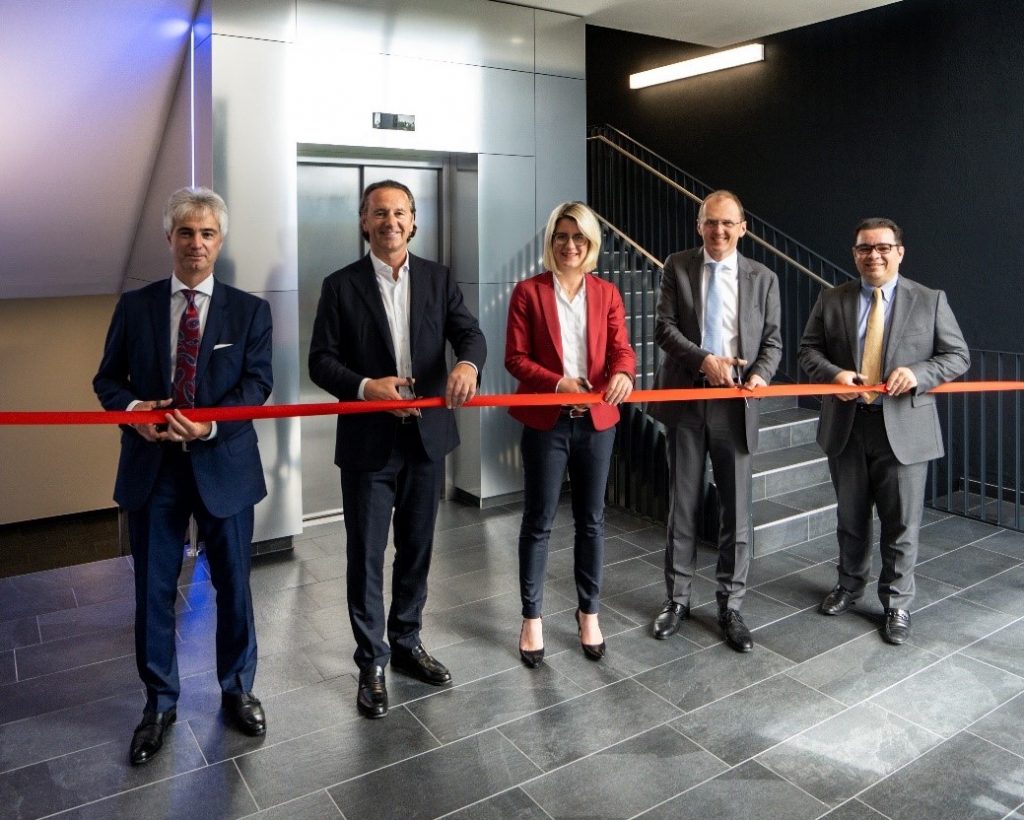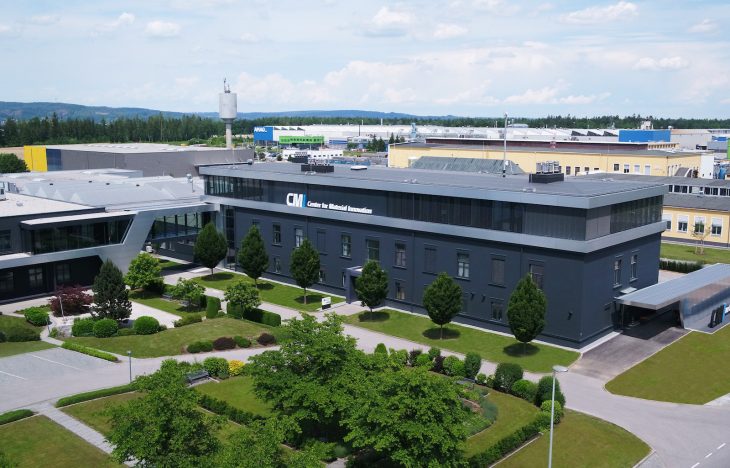AMAG Austria Metall held a ceremony to open its new new materials research and testing center, the Center for Material Innovation (CMI). The ceremony was kept small in light of the novel coronavirus situation.
AMAG’s strategic expansion of its site in Ranshofen, Austria, has been accompanied by a significant rise in production with a corresponding increase in the number of specialty products produced. Linked with this has been a sharp increase in research and materials testing activities.
“Application-oriented research and development forms the basis for innovation and high-quality products, and is thus the foundation of AMAG’s future success,” explains Gerald Mayer, CEO of AMAG. “AMAG is sending a clear signal to the market and its customers in many different industries. As a premium supplier, we are emphasizing innovation and top quality ever more strongly, as is evident from the exciting range of new products we are releasing in 2020.”

New Research Center
Over the last few years, AMAG has spent around €30 million on research and development, employing 155 R&D and innovation experts – representing about 8% of the corporation’s total workforce. The new research center represents a new milestone in this work.
The CMI is housed in a 75-year-old building that was converted to provide state-of-the-art infrastructure, as well as an ambience to foster creativity. The exterior of the building provides a futuristic appearance, with numerous aluminum features produced in AMAG’s own rolling mills.
The new research center will cooperate closely with the technology and production departments at the foundry and rolling mill. It has a wide range of research facilities and testing technologies. Some of the key features of the CMI include:
- A metal forming laboratory for testing complex three-dimensional sheet metal forming procedures, as well as for the development of products and procedures in a lab-scale rolling mill
- A heat treatment laboratory
- Mechanical materials testing (tensile and pressure tests, hardness and bending tests)
- Metallography, using microscopy for investigating metal structures
- Surface technology capabilities, focusing on anodization, pickling, brightening, passivation, bonding, and corrosion
- A laboratory for oil and emulsion analysis along with new water analysis lab
- Environmental measurement with a focus on emissions analysis
The center also provides 57 accredited testing processes for metallography, surface technology, chemical analysis, and materials testing. Accredited testing will enable AMAG to achieve formal acknowledgment from national accreditation centers that the applicable qualification and equipment requirements have been met. Furthermore, accreditation means that the new laboratory can offer a range of testing services to external customers.
The AMAG aviation products have already enjoyed significant success in regards to accredited testing. The new sample preparation and materials testing procedures at the CMI have been certified in accordance with the National Aerospace and Defense Contractors Accreditation Program (Nadcap). This involved a challenging technical evaluation of how procedures meet customer requirements and an an understanding of the industry standards applicable to the aerospace sector.
In addition to research facilities, the CMI includes modern office areas, meeting rooms, publication rooms, and a library, providing space for researchers to collaborate and access the latest publications and research reports.
“We think of the new CMI as an innovation incubator,” explains Dr. Helmut Kaufmann, chief operating officer of AMAG. “We are aiming to send a clear signal that we are taking AMAG’s strategic positioning seriously — we are a premium supplier with high standards for innovation and cooperative, customer-oriented research. Our new research center, the CMI, creates the necessary space for research infrastructure, inspiration and brainwork, packaged in a fitting architecture.”

